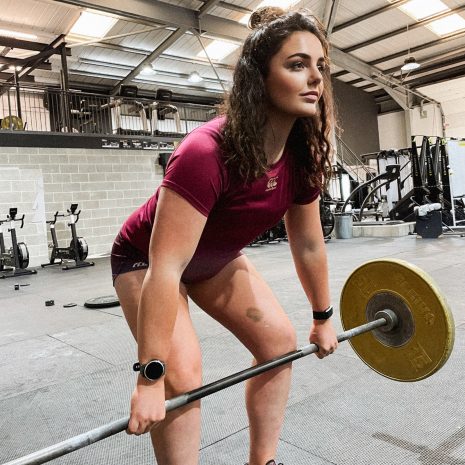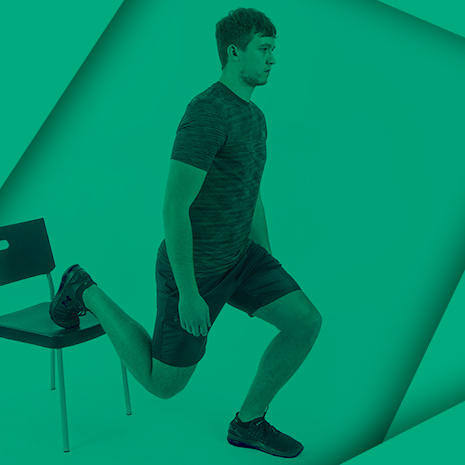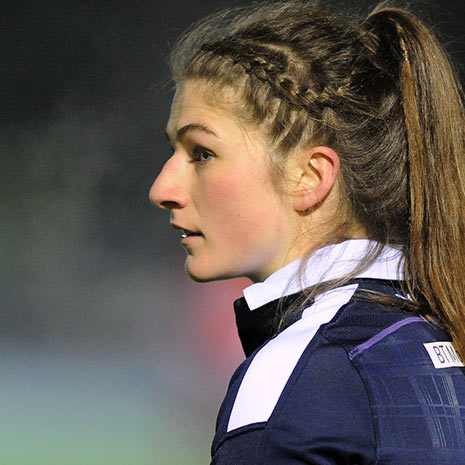“You’ve got to make sacrifices.”
rugbystore.co.uk recently caught up with Canterbury Ambassador, Kevin Sinfield, 35, (Rugby League Legend for England and Leeds Rhinos who crossed codes for Yorkshire Carnegie), at the Canterbury Ultimate Training Experience in London. We took the opportunity to ask him his advice for amateur rugby players looking to improve their game.
rugbystore.co.uk: Do you have any pregame rituals or routines that you think might be helpful for amateur players?
Kevin Sinfield: I don’t have any massive routines now. I think I did when I first started but I think you can rely on them too much. Because if something is not quite right then you get thrown out of sync and that can effect your game. So I think that it’s good to have a skeleton of a routine, like a typical meal that you’d eat, getting the right amount of sleep and just getting your bag ready which helps make sure you’re ready to go.
To really narrow it down to fine margins though can often upset your game. It’s something that I got better at as I got older. Some of the things that are thrown at you in rugby are a lot easier to deal with when you’ve got a bit more experience. For younger players, try to keep a skeleton of a routine but don’t be too thrown off if things change.
RS: Is there any advice you would give to players to help with nerves?
KS: I always enjoy feeling nervous, I always thought it was a good thing. The best way I can describe it is that it let me know that I cared about what I was going to do. When you care about something, you’re willing to completely invest yourself in it, so nerves can be a good thing.
Just embrace the nerves and enjoy them. It means you’re doing something that matters to you.
It can become a problem for certain players but to me it’s really important to stay relaxed and be nervous. That might sound a little contradictory but without being too flustered, embrace those nervous feelings: the butterfly’s you get in your stomach, the hairs on the back of your neck standing up. Just embrace them and enjoy them. It means you’re doing something that matters to you.
RS: Do you have any recovery tips for after a match or big training session?
KS: I have tried every single protocol that it out there now science wise. What I’ve always found works best for me was just getting the calories in. Eat well afterwards and making sure you’ve replaced what you’ve burnt and probably some more. Doing that allows you to train two days after, sometimes three days after at a maximum.
I have to say it’s normally fast food for me. It’s all about getting calories in, making sure I have replaced everything I have lost. Plus, you live a pretty regimented life as a rugby player or as an athlete and there has to be some release, there has to be. For me, it was for that 24 hours after a game eating what I want. And that didn’t mean I fell off the wagon completely. I was smart with it but you have got to make sure that you enjoy your life as well, that way you get the best out of yourself.

RS: What advice can you give to players who have hit a wall or feel they have plateaued when it comes to improving themselves?
KS: To be honest, I never found that. I’ve always thought that there are parts of my game that I could always be better at. Just change your focus and attack a different part of your game and improve that instead. I don’t think that anybody is a 10 out of 10 in every area.
So whether that’s increasing your fitness, or catching a high ball, spin passing from left to right, kicking with both feet or if it’s just being stronger there is always something. There is always something you can work on and there is always someone, somewhere, that is better than you are. Just keep getting feedback from people that are matter to you and keep evaluating yourself because if you’re honest with yourself there is always something that you can improve.
RS: What is the biggest difference between amateur and professional rugby?
KS: Probably sacrifices. The sacrifices a professional player makes are huge. What you will find is that the best players in the world are those that sacrifice the most and work hardest at their game.
Professional rugby is 24/7, constant. Now that’s a problem I’m faced with at the minute, you know in many respects I am in decompression because I have been institutionalised. I’ve been living, working and behaving in a certain way for 20 years and longer if you consider my amateur days. Now to suddenly break some of those down…it’s tough. I think for me as a rugby player, I always thought I only get one shot at this and I want to make the best of what I’ve got, which wasn’t great physically but I decided to make myself as committed as I could be and thankfully I have had a decent career from it.
A very “decent” career.
RS: Do you have any advice for players being asked to playing out of their favoured position?
KS: Every player will go though this at some stage. The best way to look at it is that it adds another string to your bow. If you can go and play and understand the role of someone else while making a good fist of it, that just helps you.
I can understand why people won’t like it, there’s positions I played myself that I didn’t particularly like but just try to make the best of it and understand that the team is more important than yourself. Try to play as well as you can in that position to help your team go on to win and play well.
There is always something you can work on and there is always someone, somewhere, that is better than you are.
RS: What’s the most important aspect to train for your positions (Half Back)?
KS: There’s no one area, you need to probably be a seven out of ten in most things which is quite hard to do in itself. You’re talking about being average or above that in just about every aspect of the game. You need to be fit, fast, strong and skilful. You need to have a good rugby brain, you need to have that understanding of the game and know that certain decisions that you’ll make can have a huge impact.
I don’t think that there is one really but if I had to pick one it would probably be understanding. When you’re talking about a professional game when you’re an athlete, understanding wouldn’t normally be at the top of peoples lists. But when you at half back, it’s not just yourself that you’re thinking about, you have got to think about the bigger picture and getting your team around.
RS: What other sport or sport person would you recommend rugby players to watch?
KS: I just love both codes of rugby so I’d look at some of the stars that are around at the minute. What Saracens did this season was incredible and if you look at Super League at the minute, Warrington are playing very well and have got some fantastic players.
Look at the sports teams around the world that are performing well and look at some of the fantastic individuals that are out there. When you really look at them closely, it’s clear they are all making sacrifices and always trying to get better.
Get more great tips from The Professionals:
Adam Jones on remembering to enjoy it.
David Wallace on playing to your strengths.
Geoff Cross on recovery.
Rob Vickerman on learning from your mistakes.




Comments